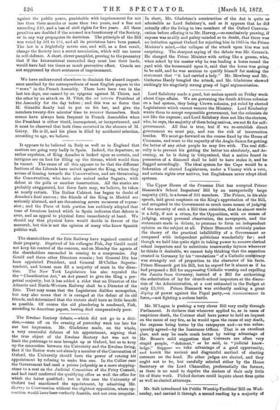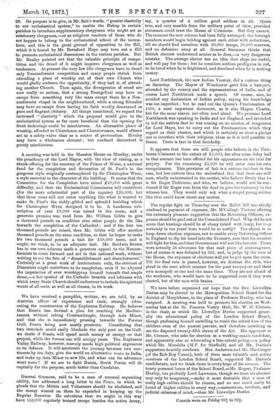Mr. Salt introduced his Public Worship Facilities' Bill on Wed-
nesday, and carried it through a second reading by a majority of
29. Its purpose is to give, in Mr. Salt's words, " greater elasticity to our ecclesiastical system," to enable the Bishop in certain parishes to introduce supplementary clergymen who might act as missionary clergymen,—or as religious teachers of those who do not happen to belong to the ecclesiastical school of the incum- bent, and this is the great ground of opposition to the Bill, which it is feared by Mr. Beresford Hope may turn out a Bill to promote ecclesiastical dissensions in the various parishes. But Mr. Henley pointed out that the valuable principle of compe- tition and the dread of it might improve clergymen as well as tradesmen. At present the very few idle clergymen have to dread only Nonconformist competition and many people shrink from attending a place of worship out of their own Church who would gladly embrace the opportunity, if they had it, of attend- ing another Church. Then again, the divergencies of creed are now really so serious, that a strong Evangelical may have no 'escape from something very like mass except there be a Non- .conformist chapel in the neighbourhood, while a strong Ritualist may have no escape from having his faith weekly denounced as pure and flagrant idolatry. All things considered, we regard the increased " elasticity" which the proposal would give to the ecclesiastical system as far more beneficial than the opening for -fresh bickerings could be mischievous. An alternative phase of worship, afforded to Churchmen and Churchwomen, would oftener act as a safety-valve than as a source of provocation. Rivalry may have a wholesome element ; but confined discontent is purely mischievous.



































 Previous page
Previous page